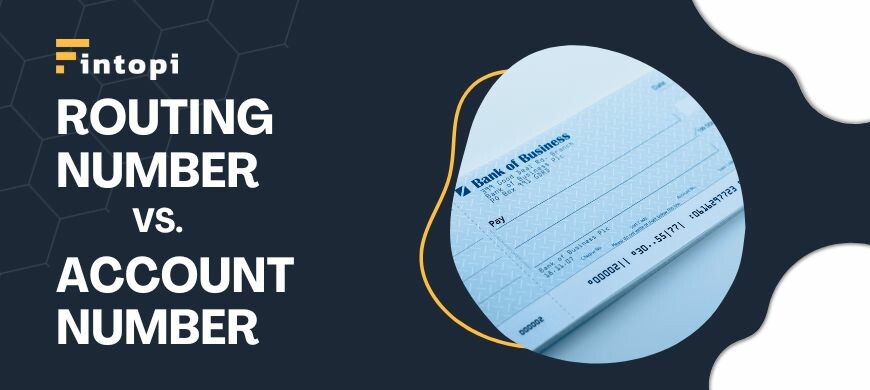Routing Number vs Account Number
You are hearing and seeing these numbers everywhere. But what are they exactly?
These two numbers are vital to banking, but they serve very different purposes. In the article, we’ll break down what each number is used for and how they impact your financial transactions. Whether you’re a new account holder or just need a refresher, read on to learn everything you need to know about routing numbers versus account numbers.
What Is a Routing Number?
We use our routing number every day without even knowing it. Your routing number is a nine-digit code that’s based on the U.S. Bank location where your account was opened. It’s the first set of numbers printed on the bottom of your checks, on the left side. When you set up direct deposit for your paycheck or send a wire transfer, you’ll need to provide your routing number.
The routing number can change if you move to a new state or open a new account with a different bank. If you’re not sure what your routing number is, you can find it in your online banking portal or give your bank a call.
Where Can You Find Your Bank’s Routing Numbers?
Your bank’s routing number is a nine-digit code that is used to identify the financial institution in a transaction. It is also referred to as an ABA routing number or a routing transit number. The routing number appears on the bottom of your checks, and it is also required for electronic transactions such as direct deposit and automatic bill payments.
If you don’t have a check handy, you can usually find your bank’s routing number on their website. Simply go to the “contact us” or “about us” page and look for the routing number in the footer of the page.
What Is An Account Number And How Does It Work?
You know what a routing number is, but what is an account number and how does it work?
Your account number is unique to your bank account and is used to identify it. The account number is assigned by the bank when you open an account and is usually a 10-digit number. Some banks may use a different system for their account numbers, such as using your social security number as your account number.
The account number works with the routing number to ensure that your payment is sent to the correct bank and then to the correct account. When you make a payment online or over the phone, you will need to provide both your routing number and your account number so that the payment can be processed correctly.
How Do I Locate My Checking/Savings Accounts’ Unique Identifiers?
If you want to know how to locate your checking or savings account’s unique identifier, there are a few things you can do.
You can check your bank statements or contact your bank directly. Your account number is usually a string of numbers that is specific to your account. You can typically find it on the bottom of your checks or your bank statements. If you can’t find it there, you can always call your bank and they will be able to tell you what it is.
Difference Between Routing Numbers Vs. Account Numbers
The routing number is the nine-digit number assigned to a bank by the American Bankers Association. The routing number identifies the bank where your account was opened and is used for electronic transactions such as direct deposit and automatic bill payments.
The account number is usually the ten-digit number that identifies your account. The account number is used to process transactions, such as deposits and withdrawals.
You will need both numbers when setting up electronic transfers, such as direct deposit or automatic bill payment. When providing routing and account numbers, be sure to use the correct numbering system for the type of transaction you are initiating.
Conclusion
Both the routing number and account number are used daily. You often use them individually. But sometimes they are used at the same time. So you must know their differences.
You know now how they work not only individually but simultaneously as well. And knowing how they work will only help you when using them.
FAQs:
Q: What happens if someone uses my correct Acct but enters the wrong Aba/routing transit?
If someone uses your correct account number but enters the wrong ABA/routing transit number, the transaction will be rejected by the bank. The ABA/routing transit number is used to identify which financial institution the funds should be routed to. If the wrong number is entered, the transaction will not be processed.
Q: Can multiple people share a single joint-account using common
A joint account is a bank account that is shared by two or more people. All account holders have equal access to the funds in the account and can make deposits and withdrawals as they see fit. Joint accounts are often used by couples or business partners who want to share finances.
Q: Is there a limit on how many people can hold a joint-account?
There is no limit to the number of people who can hold a joint account, but most banks will require all account holders to have a valid ID and sign a joint account agreement. Each account holder is responsible for any transactions made on the account, so it’s important to trust everyone who has access to it.



